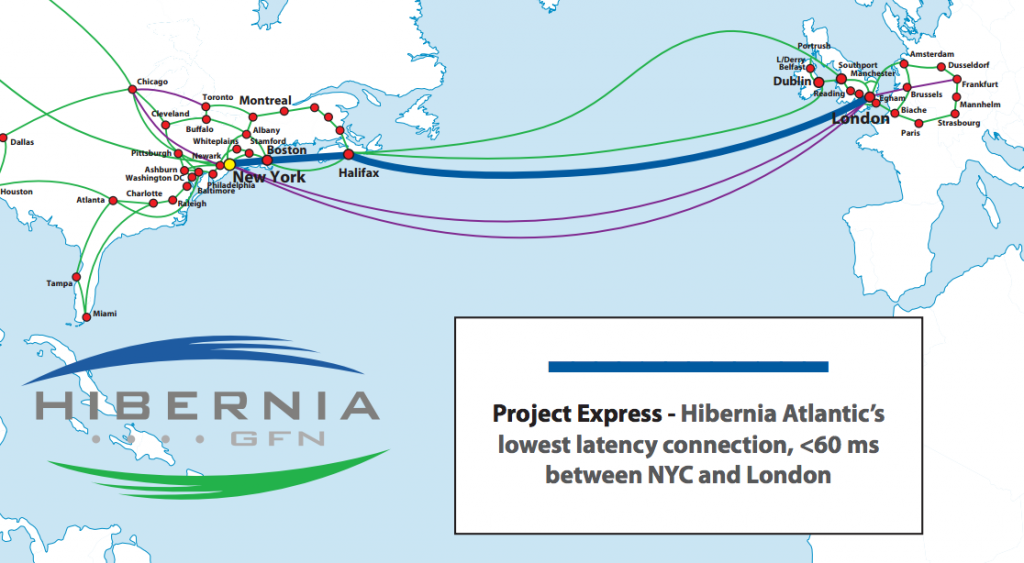“Project Express” from Hibernia Networks is a new trans-Atlantic fiber connection from New York to London. It was started in 2011 but isn’t expected to be completed until later in 2014. From a 2012 Bloomberg news article about the project:
Project Express will be the fastest cable across the Atlantic, reducing the time it takes data to travel round-trip between New York and London to 59.6 milliseconds from the current top speed of 64.8 milliseconds
The cost for this new, shorter, fiber line is reportedly over $300M. A big price tag for a 5.2 millisecond reduction in round-trip time.
It should come as no surprise then that the main customer base for this new connection is high speed trading companies.

4 replies on “The Value Of 5.2 Milliseconds”
This kind of thing is indeed fascinating… yet, I think we shouldn’t discard the benefits of faster internet links because HiFreq trading betting big on it.
As for the cost, I actually think it’s fairly cheap. Amazon proved after all that 100ms was 1% in revenue.
We could extend this by saying that 5.2ms is probably 0.05% of revenues. Applied to the size of ecommerce between the US and Europe, that’s probably quickly paying back the $300M. This may also impact the business from Akamai and others.
I suspect you are mixing comparisons. I wasn’t able to find a direct confirmation, but it was implied that this new link would be a private pay connection and not for general Internet use.
If that is the case that this new link will be limited to just private customers then the comparison to Amazon and 100ms impact on revenue doesn’t really line up. Instead the comparison is about being able to execute trades faster than those without access to this new line. Good or not that certainly has value to some people, see all the recent arguments over the claims in the book Flash Boys.
You are right, I was just making a comparison, not knowing if that specific cable would be used by regular “internet traffic”.
Yet, as the explosion of the 1st bublle showed us: once the infrastructure is there, it will stay, no matter what happens to the rest of the economy. So, of course it’s now being used by “private” links, but eventually, I bet that it will be used for other purposes. It reminds me of offshor oil platforms which are used by about 4 types of oil extraction company in their whole “life”: the first one are the “cleanest” because ehy suck the “high quality” oil and then as the quality of the oild decreases, the margin decreases as well so the exploiting company is less and less careful about its impact, security… etc.
Same goes with airplanes. They get a 20 life with the “high end” airlines, and then move to the developing country for another 20 year life (it’s just a quick paint job that you can witness on the Jakarta airport).
Agreed, over time this will trickle down to a broader audience.